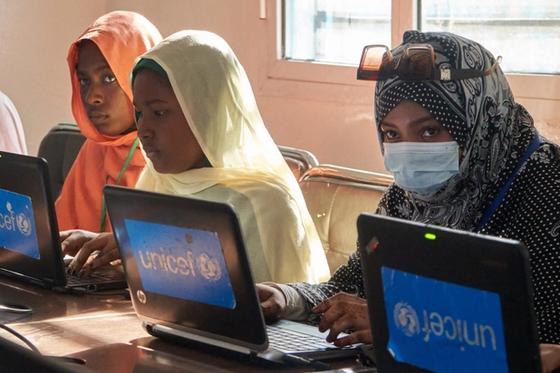
Morocco
Economic Surveillance
Through activities referred to as “surveillance,” the IMF monitors the international monetary system and global economic developments, while also engaging in regular health checks of the economic and financial policies of its 190 member countries. In addition, the IMF highlights stability risks to its member countries and advises their governments on potential policy adjustments. This work supports the international monetary system in pursuing its goal of facilitating the exchange of goods, services, and capital among countries, thereby sustaining sound economic growth. The IMF gives country-specific advice through “bilateral surveillance” and provides analysis of the international monetary system and global and regional economic developments through “multilateral surveillance.” In practice, these two aspects of surveillance inform each other, ensuring a more comprehensive and more consistent analysis of how one country’s policies affect other countries, that is, “spillovers.”
In today’s challenging global economic environment, timely and tailored surveillance remains vital to share lessons and provide members with well-calibrated policy advice. There is a need for a consistent policy mix tailored to country circumstances that recognizes trade-offs and is geared toward dealing with high uncertainty.
Bilateral Surveillance
Article IV consultations consist of a two-way policy dialogue between the IMF and country authorities and cover a range of critical issues: fiscal, financial, foreign exchange, monetary, and structural. In FY 2023, the IMF conducted 126 Article IV consultations and 9 Financial System Stability Assessments under the FSAP.

Mainstreaming Gender
In July 2022, the IMF adopted its first comprehensive strategy for mainstreaming gender to help its members address macroeconomically significant gender gaps. The strategy recognizes that macroeconomic and financial policies affect women and men differently, often unintentionally. The IMF is helping policymakers identify and remedy biases of this type by applying a gender lens to its main activities: surveillance, lending, and capacity development.
Under the new strategy, the IMF will work with its 190 members and external partners both to expand the breadth of its policy recommendations and to bring greater rigor to its analysis to help more countries tailor and deploy policies to address gender inequality.
Since the launch of the strategy, the IMF has examined gender issues in more than 15 countries, provided tailored technical assistance on gender budgeting in 5 countries, released the Gender Data Hub to facilitate staff analysis, and offered newly developed internal and external courses on gender and macroeconomics.
Over time, gender-sensitive macroeconomic and financial policies will result in higher and more inclusive growth, greater economic stability and resilience, and lower income inequality—a dividend not just for women, but for societies as a whole.
Multilateral Surveillance
As part of its multilateral surveillance, the IMF issues biannual reports and updates on the latest global economic developments: the World Economic Outlook, the Global Financial Stability Report, and the Fiscal Monitor. In-depth analyses of selected and highly topical issues are thematic chapters in these publications. Interim updates on global economic conditions are issued when warranted. In addition, as part of an ongoing effort to provide a rigorous and candid assessment of global excess imbalances and their causes, the External Sector Report is published annually.
The IMF also publishes reports on the outlook for regions. These cover regional policy developments and challenges and provide country-specific analysis.
Article IV consultations and Financial System Stability Assessments under the FSAP also discuss issues related to multilateral surveillance, where relevant.
Policy Advice
The IMF Executive Board discusses all aspects of the IMF’s work, from Article IV consultations to policy issues relevant to the global economy. The Board conducts its work based on policy papers prepared by the IMF staff. In FY 2023, the IMF published 65 of these policy papers externally.
Multiple Currency Practices
In July 2022, the Executive Board completed its review of the IMF’s policy on multiple currency practices. Executive Directors observed that multiple currency practices can be distortionary, create unfair competitive advantage among countries, and hamper trade and investment, particularly over the medium and long term. They agreed that the policy on multiple currency practices should remain a cornerstone of the IMF’s legal and policy framework to ensure orderly exchange arrangements and a stable system of exchange rates. They welcomed adjustments to the policy to reflect developments since the most recent review, in the 1980s, so that it does not discourage good practices in foreign exchange markets and is better aligned with the IMF’s other policies (including the policy on exchange restrictions and the Institutional View on the Liberalization and Management of Capital Flows), while ensuring that it continues to address policy actions that are considered impermissible under the new policy.
Policy Papers
Filtered by All Policy Papers
Filter

Read Next
Lending